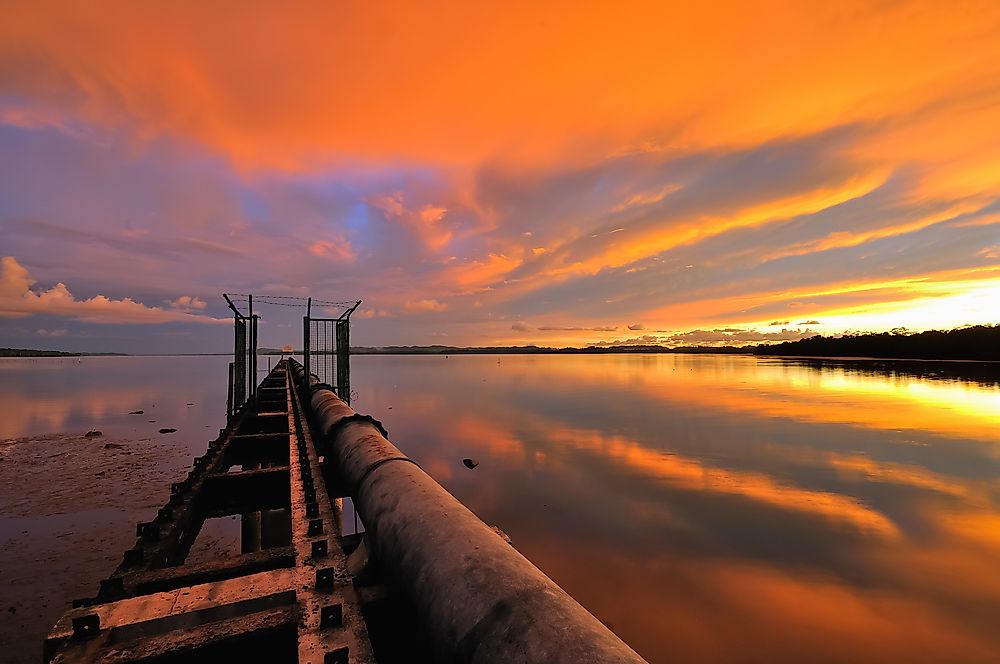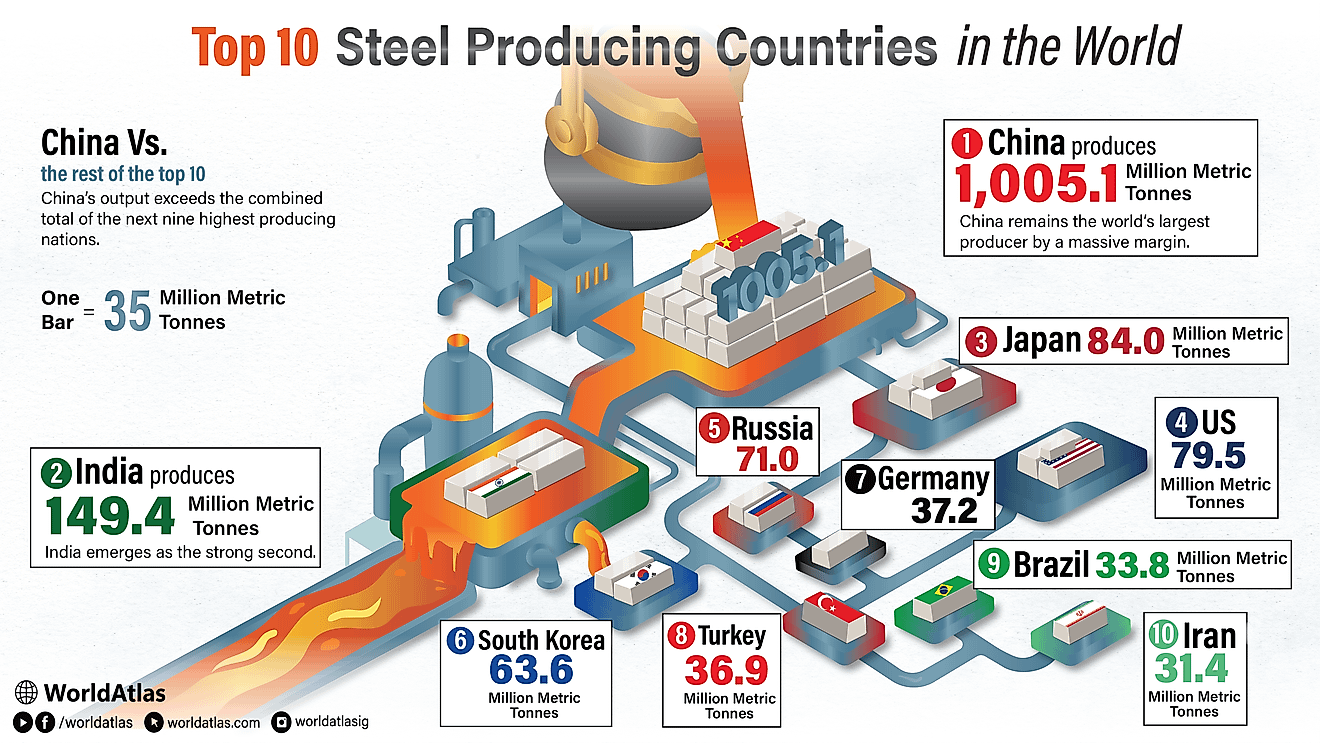What Are The Major Natural Resources Of Brunei?

Brunei is an Asian nation that is situated in the continent's southeastern edge where it spans an area of roughly 2,226 square miles. In 2017, Brunei's gross domestic product was approximately $12.13 billion which was the 129th highest in the world based on estimates from the World Bank. Despite its low gross domestic product, its per capita gross domestic product was the fourth highest in the world, at approximately $78,836, according to data from the International Monetary Fund. Brunei's economic success can be attributed to different reasons such as the proper utilization of its natural resources, the economic policies put in place by the government and investments from foreign nations. Some of Brunei's most vital natural resources include forests and deposits of oil and gas.
Land Resources
Estimates from the World Bank indicate that arable land in Brunei makes up 2.7% of the country's total area. In 1996, the Bruneian agriculture sector contributed roughly 5% to the country's gross domestic product. In 1980, due to the low quantities of food produced in Brunei, the nation was forced to import close to 80% of its food crops. The Bruneian government estimates that the country is close to being self-sufficient in the production of vegetables. Rice is one of the most important food crops in Brunei due to the large quantities of rice the Bruneian people consume. Despite its importance, only 1% of the rice eaten in the country is grown within its borders. The government of Brunei has taken several steps to modernize the country's farming sector such as introducing technology and irrigation schemes. The Bruneian government is also actively encouraging farmers to grow citrus fruits, particularly for the export market. Despite the measures that the government has put in place, the country's agricultural sector has failed to grow. The lack of growth in Brunei's agricultural sector is because most Bruneian people are not interested in working in the sector. According to the Bruneian labor department, close to 4.5% of the Bruneian labor force worked in the country's agricultural sector. The lack of interest is due to the low salaries that the Bruneian farming sector earns.
Livestock
Bruneian farmers keep different types of livestock such as cattle and buffalo. Because Brunei is a Muslim nation, in 1993 the government made it illegal for farmers to rear pigs. The most common variety of poultry kept in Brunei is chicken which is kept for both meat and eggs. Brunei achieved self-sufficiency in egg production, and it is considered to be nearly self-sufficient in the production of poultry.
Forests
Data indicates that close to 72% of Brunei's total area was covered with forests in 2015. Since 2004, the amount of land in Brunei covered with forests has been declining significantly. The decline in Brunei's forest cover is due to the need for land for other purposes. There are several types of forests in Brunei such as lowland forests and peat swamp forests. Mangrove forests are also widespread in Brunei, especially along the country's coast. The Bruneian government estimates that peat swamp forests occupy roughly 15% of the country's total area. Historical evidence indicates that mangrove forests previously covered most of the areas currently covered by peat swamp forests. The most common forest variety of forest in Brunei is the mixed dipterocarp forest. The Bruneian government estimates that the mixed dipterocarp forests cover roughly 33% of the country's entire area. Several experts consider the forests in Brunei to be among some of the best preserved in the world. The Bruneian forests are believed to play a significant role in regulating the global climate. Due to the importance of forests in Brunei, the Bruneian government has invested significantly in protecting the forests.
Beautiful Scenery
Brunei has been blessed with a variety of beautiful sites that draw visitors to the nation. Brunei is famous for tourists due to the vast biodiversity within its borders. Brunei's forests are particularly popular with eco-tourists. One of Brunei's premier tourist destinations is the Ulu Temburong National Park. The park is also commonly referred to as the Fathful Park which is popular because it was the nation's first park. The park is often referred to as Brunei's green jewel. Several rivers flow through the Fathful Park with the major ones being the Belalong River and the Temburong River. Brunei also has some historical sites that attract vast numbers of tourists with the major one being the Sultan Omar Ali Saifuddin Mosque.
Oil
Brunei's most critical natural resource is oil as the sector contributes massively to the country's economy. The oil sector has been the most crucial sector in Brunei for close to 80 years. Oil exploration in Brunei began in the 19th century, and in 1899 the country's first oil well was drilled in Bandar Seri Begawan. At the time six corporations were involved in the exploration of oil in Brunei. Royal Dutch Shell, one of the companies involved in exploration for oil in Brunei. Due to the low amount of oil that the companies discovered, they withdrew from Brunei and by 1918 only the Royal Dutch Shell Corporation was actively involved in oil exploration in Brunei. Brunei's first commercially viable oil field was the Seria field which was located on the country's western edge. For a significant portion of Brunei's modern history, the field was the only commercially viable oil field in the country. With the discovery of the field, several other companies began exploring for oil in Brunei and from 1914 to 1960, close to 50 oil explorations were carried out in the country although none of them was successful. By the early 1940s, the field produced roughly 17,000 barrels of oil each day. Brunei achieved peak oil production during the late 1970s when the nation produced roughly 1,341,957.3 cubic feet of oil each day.
Natural Gas
Apart from oil, Brunei also has significant deposits of natural gas and the nation is home to one of the largest natural gas processing plants in the world. Most of Brunei's natural gas is for export and is primarily sold to Japan. Brunei also sells vast quantities of natural gas to South Korea.
The Bruneian Economy
Since 2012, the Bruneian gross domestic product has been decreasing gradually. The Bruneian government has put in place several steps to stem the decline of the country's economy.











